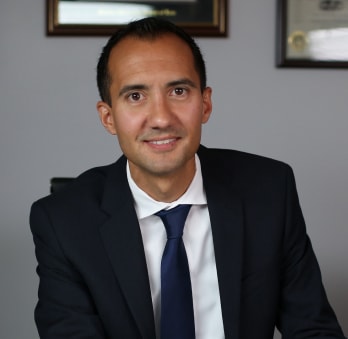The Court of Appeals just declared the Minnesota DWI Refusal law unconstitutional. In State v. Trahan, the Court explained that charging a motorist with refusing to submit to a blood draw for purposes of testing alcohol concentration is unconstitutional if the police did not have a search warrant. This issue had sort of been addressed by the Court in recent years, but the Court made a very careful distinction in cases involving the factual scenario in Trahan.
CASE FACTS.
Trahan involved a typical arrest for suspicion of DWI. A Ramsey County Sheriff’s Deputy pulled over Trahan’s vehicle because of erratic driving and speeding. Trahan was very agitated and confrontational with the Deputy. The Deputy suspected that Trahan was under the influence of alcohol. Because of Trahan’s behavior, the Deputy arrested him without asking him to perform any field sobriety tests. Trahan was taken to the jail, read the Implied Consent Advisory, given time to contact an DWI attorney, and then was asked if he would provide a urine sample. Trahan agreed to provide a urine sample, but was not cooperative and attempted to fill the cup with a mixture of water and urine. The Deputy then asked Trahan if he would submit to a blood draw. Trahan refused, claiming he already provided a sufficient urine sample. The Deputy then deemed Trahan to have refused to submit to a test for intoxication. Trahan was ultimately charged with a Refusal under the Minnesota DWI Refusal law. The arresting Deputy did not have a search warrant for the blood draw.
RECENT DWI CASES.
Recent United States Supreme Court and Minnesota Supreme Court cases have attempted to clarify when police need a search warrant in a DWI arrest before testing a driver’s level of alcohol intoxication. Most of these DWI cases have said that police do not need a search warrant if they ask an arrested driver to submit to a breath test or if the suspected drunk driver was involved in an accident and needed emergency medical treatment. In those cases, the courts have said that the police can seek a test under an exception to the search warrant requirement – usually as a search incident to arrest or as what’s known as an exigent circumstance. However, different privacy interests and due process rights are implicated when the police seek to take a blood draw and forcibly intrude beyond the body’s surface.
WHY WAS THE MINNESOTA DWI REFUSAL LAW UNCONSTITUTIONAL?
That was the major distinction in the Trahan decision – Trahan’s case did not involve an accident or any other need to render emergency medical treatment to Trahan. The arresting Deputy could have asked Trahan to submit to a breath test. If Trahan would have refused, then the State could have lawfully prosecuted him for refusing under the Minnesota – Inver Grove Heights DWI Refusal law. However, because the arresting Deputy asked Trahan to submit to a blood draw, and because there was no need for emergency medical treatment, the Court held that due process required the Deputy to get a search warrant:
We conclude that criminalizing the refusal to submit to a warrantless blood test relates to the state’s ability to prosecute drunk drivers and keep Minnesota roads safe, but it is not precisely tailored to serve that compelling state interest. It therefore fails strict-scrutiny review.
That was the magic language from the Trahan decision. The Court said the the Minnesota DWI Refusal law is not precise enough to allow for making it a crime to refuse to submit to a warrantless blood test.
To summarize, the police do not need a search warrant to require a suspected drunk driver to submit to a breath test. The police also do not need a search warrant to take a blood draw from a suspected drunk driver in cases involving an accident or some other need to render emergency medical treatment to the suspected drunk driver. But, as it stands right now, the police do need a search warrant to take a blood draw from a suspected drunk driver who is arrested during a routine DWI arrest without an accident.
HIRE INVER GROVE HEIGHT’S BEST DWI ATTORNEYS
If you or someone you know if facing a DWI or is charged under the Minnesota DWI Refusal law, call our DWI lawyers today to set up a free consultation.



